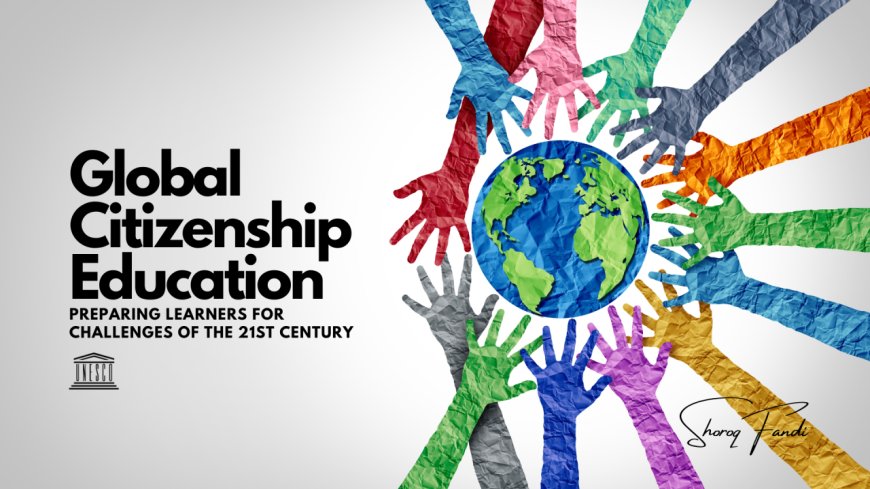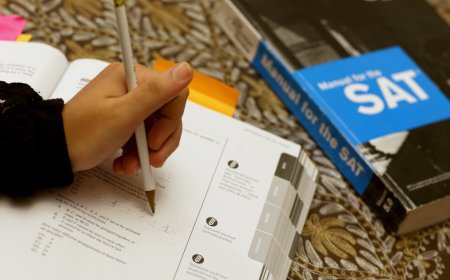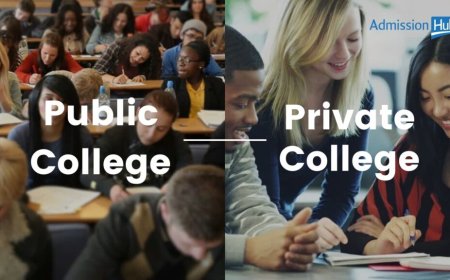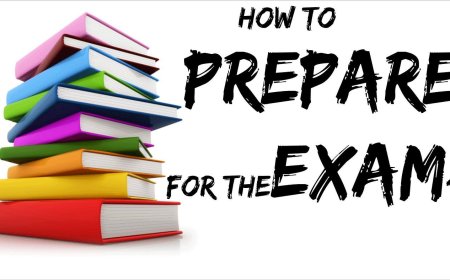Teaching Global Citizenship in Ugandan Classrooms
Teaching Global Citizenship Education (GCE) in Ugandan classrooms means embedding it into the curriculum, employing diverse teaching methods, and nurturing students’ awareness of their global connections and responsibilities. The goal of GCE is to help students develop a broad worldview, build strong learning skills, and acquire lifelong abilities that extend beyond school, preparing them to actively participate as global citizens.

Teaching Global Citizenship in Ugandan Classrooms encompasses the integration of global citizenship education (GCED) within the educational framework of Uganda, aiming to equip students with the skills and knowledge necessary for active partici- pation in an increasingly interconnected world. This approach emphasizes empathy, social responsibility, and critical thinking, reflecting the need for a well-rounded education that addresses contemporary global challenges such as climate change, social injustice, and cultural diversity. The importance of this educational paradigm is underscored by Uganda’s historical context, which includes the legacy of colo- nialism and efforts to enhance educational access and equity, particularly following significant policy reforms like the Universal Primary Education initiative launched in 1997.[1][2][3].
The implementation of GCED in Uganda faces various challenges, including in- sufficient resources, inadequate teacher training, and a rigid educational system that prioritizes standardized testing over innovative teaching methods. Despite these obstacles, recent curriculum reforms have begun to incorporate themes of global citizenship, encouraging active learning and community involvement. Notably, pro- grams such as the Schools for Schools initiative highlight the positive impact of local and international partnerships in promoting cross-cultural understanding and civic engagement among students.[4][5][6].
Prominent controversies surrounding the teaching of global citizenship in Ugandan classrooms often center on the effectiveness of these educational reforms and their ability to truly empower students from diverse backgrounds. Critics argue that while policies may be in place, the on-ground implementation frequently falls short, leading to disparities in educational quality and access.[7][8]. Moreover, the tension
between traditional educational values and the progressive aims of GCED continues to provoke debate among educators, policymakers, and stakeholders within the community.[4][9].
As Uganda seeks to cultivate a generation of responsible global citizens capable of addressing pressing issues both locally and globally, the ongoing evolution of its ed- ucational practices will be crucial. By fostering a learning environment that prioritizes inclusion, critical thinking, and civic engagement, educators hope to inspire students to become active agents of change in their communities and beyond.[10][8][6].
Historical Background
The historical context of education in Uganda has significantly influenced the teach- ing of global citizenship in classrooms. Initially, formal education was introduced by missionaries in the late 19th century, with the first schools established between 1877
The post-independence era in Uganda marked a pivotal shift in educational policy. In 1963, the Castle Education Commission was established to reform the education system, which was previously designed to produce skilled workers for colonial industries rather than for the needs of an independent Uganda[1]. This led to the introduction of policies that emphasized the importance of access to education for all citizens, aiming to create a society united through shared knowledge and moral standards[1].
The Universal Primary Education (UPE) policy launched in 1997 aimed to enhance educational equity and accessibility, particularly for marginalized groups, thereby contributing to a more inclusive approach to citizenship education[1]. Additionally, curriculum reforms in the 1990s began addressing contemporary issues such as environmental education and multicultural education, reflecting a growing recognition of the need to prepare students for a globalized world[1].
The Kruit exchange visit in 2022 further emphasized the necessity of incorporating discussions on colonial history into the curriculum, illustrating the ongoing impact of Uganda's colonial past on current educational practices[11]. The exchange focused on developing collaborative lesson packages and a manual on colonial history edu- cation, promoting multiple perspectives on decolonization and ethical global issues in pedagogy[11]. This historical awareness is crucial for fostering future leaders who are informed about global political affairs and equipped to navigate the complexities of citizenship in an interconnected world.
Curriculum Framework
Overview of Curriculum Development in Uganda
Curriculum development in Uganda has undergone significant changes since the 1990s, addressing various problem areas that affect the country's well-being and unity. Key focus areas have included environmental education, population and family life, multi-cultural education, and education for peace. Despite these efforts, the formal education system remains largely rigid, test-based, and competitive rather than flexible, cooperative, and research-oriented. The National Curriculum Develop- ment Centre (NCDC) has been instrumental in institutionalizing curriculum review processes to enhance educational quality for all citizens[1].
NRM-ERA Education Policies
Following the post-conflict recovery in 1986, the National Resistance Movement-Ed- ucation and Reform Agenda (NRM-ERA) sought to improve the educational land- scape, which had suffered from years of civil strife. Many primary classes were held in
Universal Primary Education (UPE)
The Universal Primary Education (UPE) program, launched in 1997, aimed to redistribute educational resources and improve access to primary education for
Education for All (EFA) Policy
The Education for All (EFA) policy complements the UPE initiative by advocating for the overall improvement of the educational sector, ensuring that it meets the
diverse needs of the population. This includes promoting technical education, raising standards in agriculture, and focusing on girls' education and adult education initia- tives[1].
Global Citizenship Education (GCED)
Recent educational reforms have increasingly recognized the importance of Global Citizenship Education (GCED). This approach integrates themes of empathy, mind- fulness, and social responsibility into the curriculum. The GCED framework aims to equip learners with the competencies necessary to engage with contemporary global issues, fostering critical thinking and a sense of global interconnectedness[2][10].
The curriculum is designed to be interactive and self-paced, incorporating digital learning tools to enhance engagement and understanding of global citizenship themes[3].
Civic Education
Civic education plays a crucial role in the Ugandan curriculum by empowering citizens to participate actively in democratic governance. The Civic Education Coalition in Uganda (CECU) focuses on creating awareness and providing learning experiences to equip citizens with the knowledge and skills necessary for meaningful participation in democratic processes. The curriculum emphasizes human rights, good gover- nance, leadership, and accountability[12]. This civic education initiative is aimed at fostering informed citizenry capable of demanding accountability and contributing to national development.
Implementation in Classrooms
Challenges in Implementation
Despite the structured support and resources available, the implementation of GCED faces significant challenges in Uganda. Many teachers encounter a lack of resources, inadequate training, and insufficient classroom conditions, which can hinder effective teaching[4]. Additionally, the rapid expansion of Universal Primary Education has resulted in many educators being inadequately prepared for the demands of the thematic curriculum, affecting their confidence and motivation[4]. To address these challenges, comprehensive training and capacity-building initiatives are essential
to equip educators with the necessary skills and knowledge to effectively deliver GCED[13].
Course Structure and Support
The implementation of Global Citizenship Education (GCED) in Ugandan class- rooms involves a structured approach, primarily through an engaging and self-paced learning course designed by UNESCO MGIEP. The course is crafted to promote critical thinking, empathy, and global citizenship skills among students aged 12 to 17 years, utilizing storytelling, dialogue, inquiry, reflection, and gamification techniques to enhance the learning experience[3]. Throughout the course duration, educators receive ongoing support and guidance to ensure effective integration of GCED principles into their teaching practices[3].
Educational Framework
The educational framework for GCED focuses on three essential domains: cognitive, socio-emotional, and behavioral. These domains work synergistically to provide a well-rounded learning experience that empowers students to engage actively in both local and global contexts. Teachers are encouraged to adopt innovative pedagogical strategies, such as project-based learning, which has proven effective in fostering global competencies across various subjects[7][14]. This approach aims to cultivate a generation of responsible global citizens capable of addressing contemporary challenges.
Localizing GCED
For GCED to be relevant and impactful in Ugandan classrooms, it must be localized and contextualized. This means understanding and analyzing the socio-cultural, polit- ical, economic, environmental, and digital dimensions that shape students' lives[10]. Educators are urged to utilize existing resources and adapt instructional activities to fit their local contexts, ensuring that students can connect with the global issues presented in the curriculum[10].
Expected Outcomes
The successful integration of GCED in Ugandan classrooms aims to empower learners to become creative and responsible global citizens, capable of addressing global challenges collaboratively[8]. By fostering a learning environment that respects diversity and encourages ethical engagement, educators can help students transition from theoretical knowledge to practical application, ultimately contributing to a more just and sustainable world[7][14]. Schools participating in the program are also eligible for recognition through certificates and letters of appreciation from UNESCO MGIEP, which serve to acknowledge their commitment to promoting GCED principles[3].
Case Studies
Implementation of Global Citizenship Education in Different Contexts
Global Citizenship Education (GCE) has been integrated into various educational systems worldwide, with distinct approaches shaped by local socio-economic, politi- cal, and historical contexts. For example, in Greece, GCE faces challenges due to an emphasis on ethnocentrism and Europeanism, which hampers effective delivery[14]. Conversely, Sweden's strong commitment to human rights and internationalism has facilitated a more successful integration of GCE into school practices, illustrating how differing national values influence educational outcomes[14].
GCE in Pre-Primary Education
Research indicates that initiating GCE at the pre-primary level is crucial, as chil- dren aged 5 to 7 are particularly capable of developing new global skills[14]. This underscores the necessity of incorporating GCE into early childhood education to prepare young learners for a globalized world. However, significant gaps and
Teacher Training and Professional Development
In Uganda, the Education 2030 Agenda emphasizes the professional development of teachers to effectively deliver GCE and foster high-quality, inclusive lifelong learning- [8]. Recent initiatives have focused on the development of a Teacher Management Information System (TMIS) and comprehensive national teacher policies aimed at enhancing the quality of teaching and learning processes[8]. Such strategic interven- tions demonstrate the importance of equipping educators with the necessary skills and resources to implement GCE effectively in their classrooms.
Practical Resources and Methodologies
Educational resources such as Oxfam's global citizenship guide have been created to assist teachers in implementing GCE across different subjects and age groups. This guide includes case studies, activities, and frameworks that promote critical engagement with global issues, thus encouraging students to become active global
Challenges and Opportunities in International Schools
International schools in Uganda face both challenges and opportunities in imple- menting GCE. These institutions offer a unique educational environment that pro- motes cultural diversity and personal growth while preparing students for global citizenship[17]. By addressing the specific challenges faced by these schools, such as ensuring a balanced approach to extracurricular activities and support services, educators can leverage the opportunities presented by international schooling to enhance GCE outcomes for their students[17].
Community and Parental Involvement
Engaging Stakeholders in Education
Community and parental involvement play a crucial role in enhancing the educa- tional experience and promoting global citizenship in Ugandan classrooms. Effective educational policies emphasize the importance of engaging diverse stakeholders, including teachers’ associations, parent-teacher committees, and local communities, in decision-making processes related to education policy implementation[9]. Stake- holder consultations, forums, and surveys are utilized to gather feedback, address concerns, and solicit input, which enhances ownership and ensures that policy interventions are responsive to the needs of various stakeholders[9].
Building Partnerships through Schools for Schools Program
The Schools for Schools program exemplifies the positive impact of community involvement by fostering partnerships between rural Ugandan schools and interna- tional "sister schools." This initiative allows students from partnered schools to learn about each other's cultures while collaborating on projects that promote educational equity[5]. Such partnerships not only enhance cross-cultural understanding but also empower students to take action on global issues within their local context.
Encouraging Local Engagement through Community Ser- vice
Community service initiatives provide practical avenues for youth to engage with social issues at a grassroots level. Programs that encourage students to participate in local initiatives—such as volunteering at shelters or organizing environmental clean-ups—instill a sense of ownership and the realization that they can effect positive change in their communities[6]. By participating in service learning activities,
The Role of Parents in Fostering Global Citizenship
Parents play a vital role in cultivating global citizenship values in their children. By engaging in discussions about cultural differences, encouraging empathy, and sup- porting their children's involvement in community projects, parents can significantly influence their children's understanding of global interconnectedness. Michelle Con- nolly, an educational consultant, highlights the importance of equipping children with the tools to make meaningful changes through community involvement, reinforcing the idea that active participation starts at home[6].
Enhancing Educational Outcomes through Teacher Train- ing
Additionally, initiatives that provide teacher training within the Sister School Network help educators enhance their teaching methods and educational standards, further benefiting students and the community at large[5]. Well-trained teachers can better facilitate discussions on global citizenship, helping students grasp the complexities of social justice and environmentalism[7]. This, in turn, cultivates informed, caring individuals ready to contribute positively to their communities and the world beyond.
References
[1] : Review of education policy in uganda (revised) | PDF - SlideShare
[2] : Improve Secondary Teachers Education in the National Teachers' Colleges ...
[3] : Training Tools for Curriculum Development: A Resource Pack for Global ...
[4] : High Impact Strategies to Mainstream Global Citizenship Education in ...
[5] : Global Citizenship Schools | Initiative For Institutions | Global ...
[6] : Citizenship Education in Uganda | Country Profiles: Citizenship ...
[7] : Teachers and Teaching in Uganda - The Uganda School Project
[8] : Primary School Teachers trained on the Implementation of Global ...
[9] : Global citizenship education - Wikipedia
[10] : (PDF) Global citizenship.pdf | Denis Sekiwu - Academia.edu
[11] : Education – Uganda National Commission for UNESCO
[12] : Global Citizenship in the Classroom | Reboot Education
[13] : Global Citizenship Education: Curious Teachers, Critical Classrooms
[14] : Top International Schools in Uganda - Nellions
[15] : Assessing Uganda's National Teacher Policy: Aligning Ambitions With ...
[16] : Far Away Friends | Transforming Education in Rural Uganda
[17] : Raising Global Citizens: Strategies for Cultivating Open-Mindedness in ...
[18] : 9 SEL Activities that Promote Global Citizenship & Global Learning










































